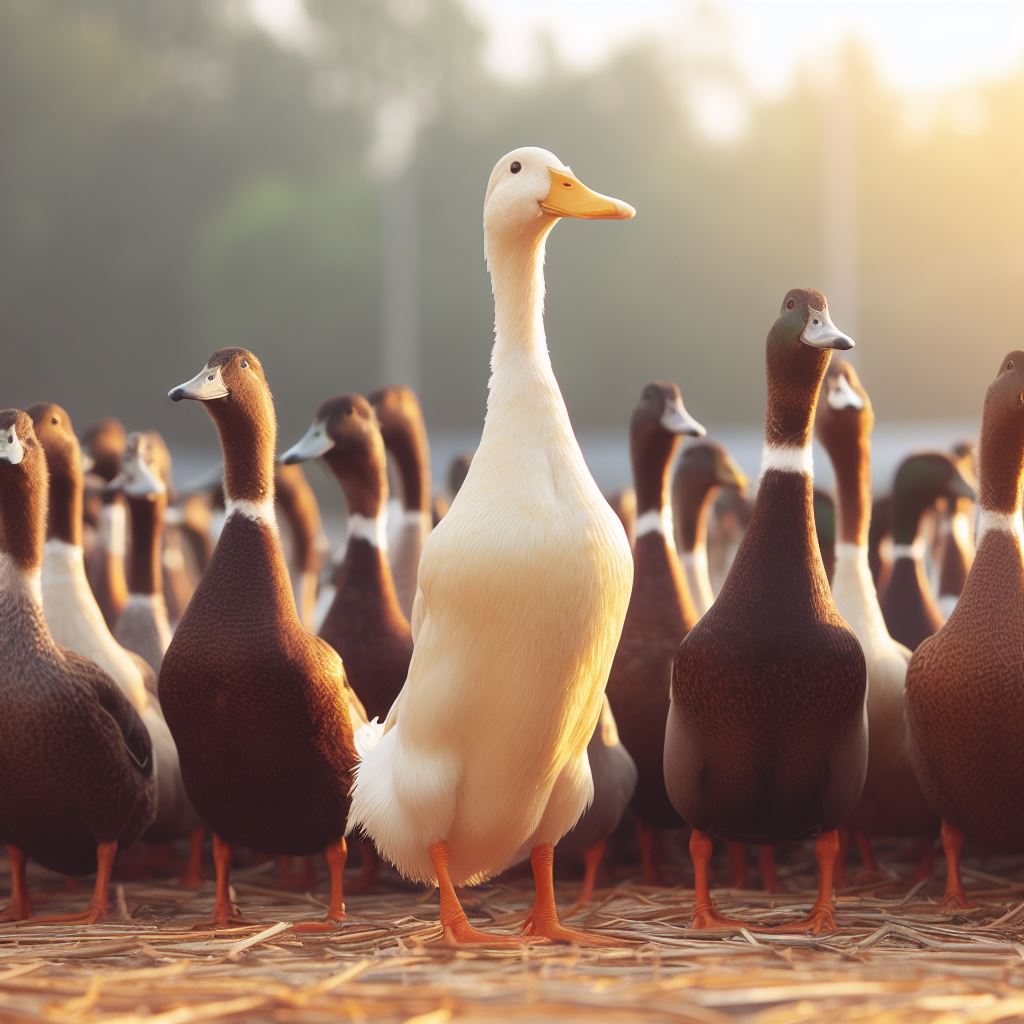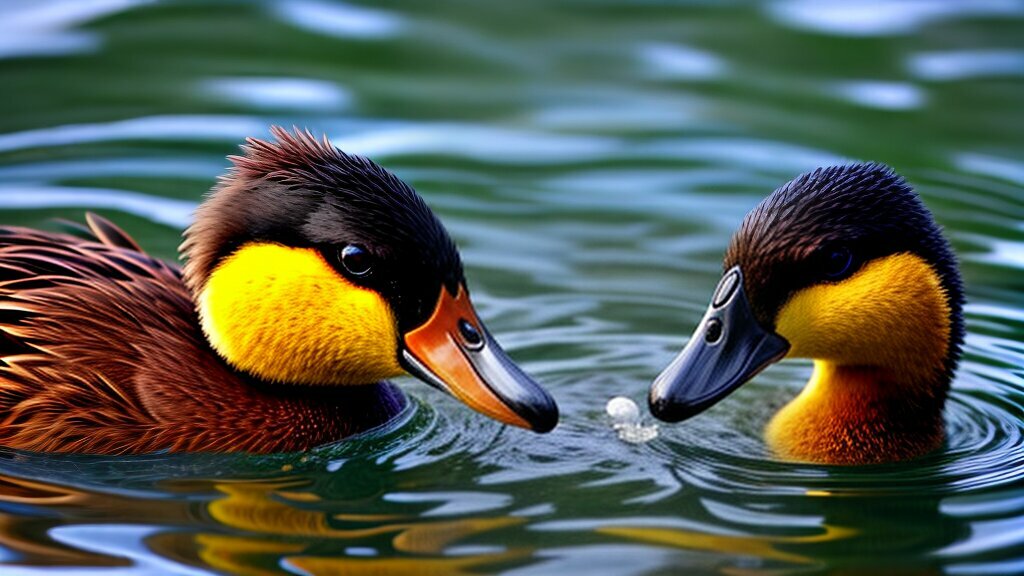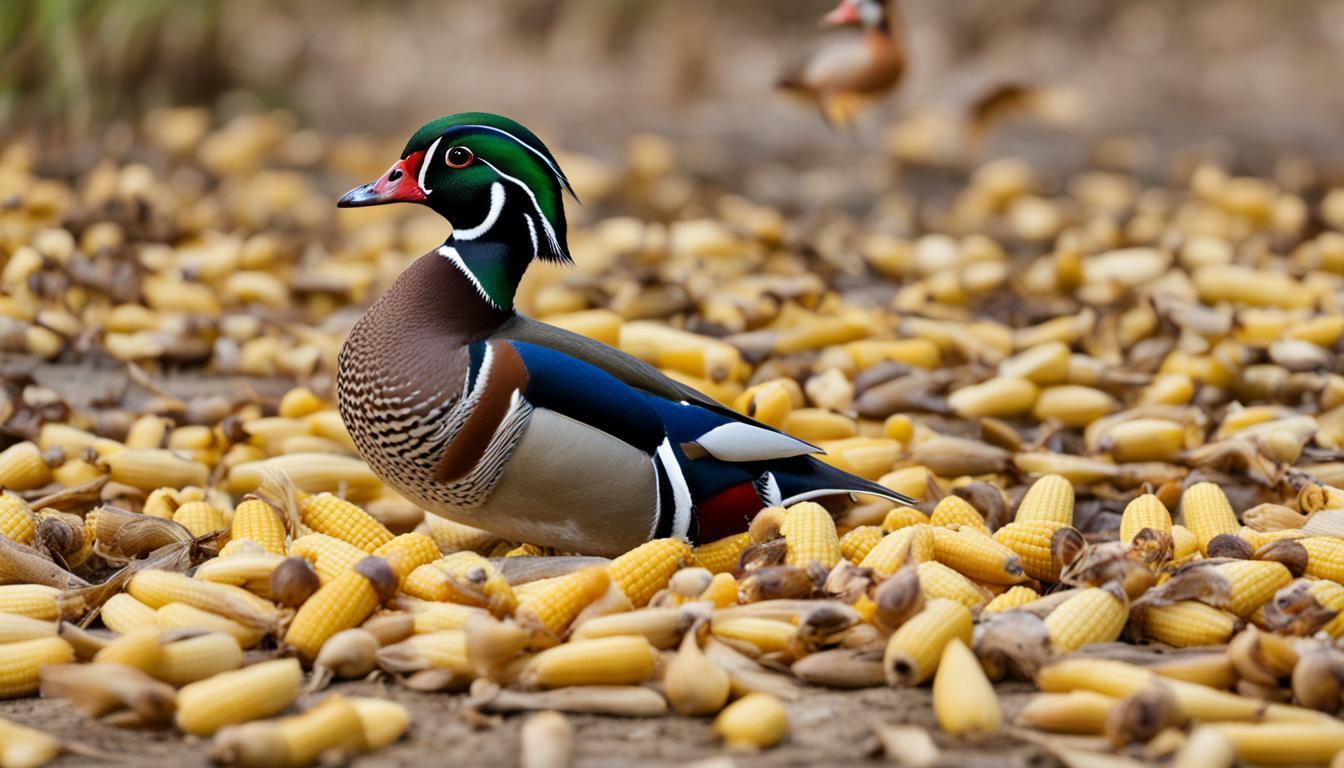Can Ducks Eat Soybeans? Are Soybeans Safe For Ducks?
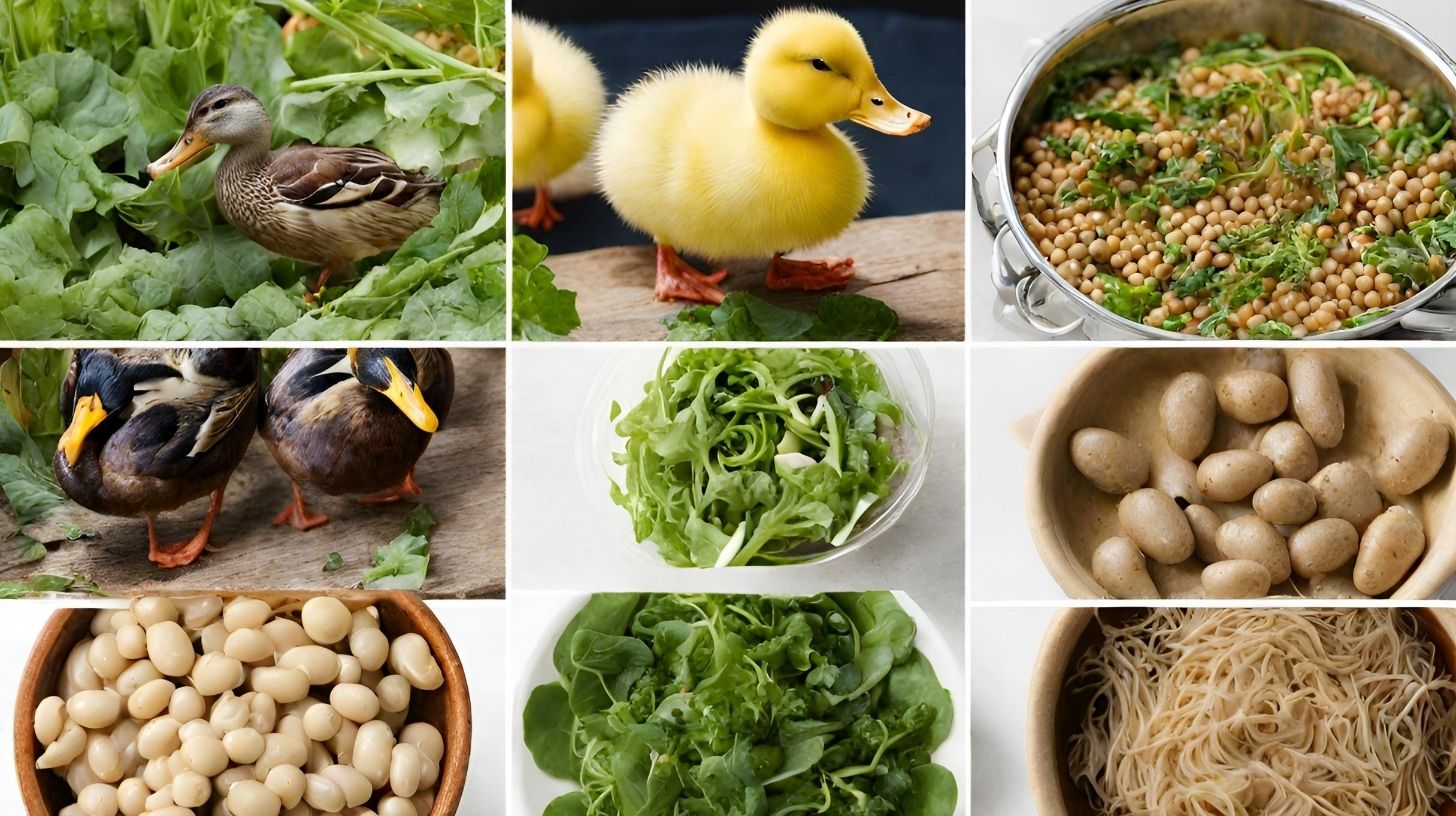
Table of content:
- Are Soybeans Safe for Ducks to Eat?
- Nutritional Benefits of Soybeans for Ducks
- Preparing Soybeans for Ducks
- How Much Soy Can Ducks Eat?
- What Do Ducks Eat Besides Soybeans?
- Are Soybeans Safe for Baby Ducks?
- Can Ducks Eat Edamame?
- What About Soy-Based Duck Feed?
- Soybean Allergy in Ducks
- Soybeans and Duck Egg Nutrition
- Can Ducks Eat Soybean Sprouts?
- Are Ducks Allergic to Soy?
- Soybean Precautions and Drawbacks
- Best Practices When Feeding Ducks Soybeans
- Frequently Asked Questions
- Conclusion
Soybeans are an excellent source of nutrition for ducks when included as part of a varied diet. Soy contains high levels of protein, energy, and fiber that support duck health. However, soybeans also contain anti-nutrients and allergenic compounds that can cause health issues when fed improperly or in excess.
Key Takeaways:
- Soybeans are safe for ducks to eat in moderation as part of a balanced diet.
- Soybeans provide protein, fat, and fiber that ducks need, but too much soy can lead to digestive upset.
- Only feed ducks cooked, mashed, or soaked soybeans, as raw soybeans contain anti-nutrients that can negatively affect duck health.
- Soybeans should be limited to less than 15% of a duck’s total diet to avoid potential soy allergy and thyroid issues.
- Baby ducklings should not eat soybeans until fully feathered around 6-8 weeks old.
By understanding proper soybean preparation and recommended feeding amounts, duck owners can safely incorporate soy as part of a nutritious, balanced diet.
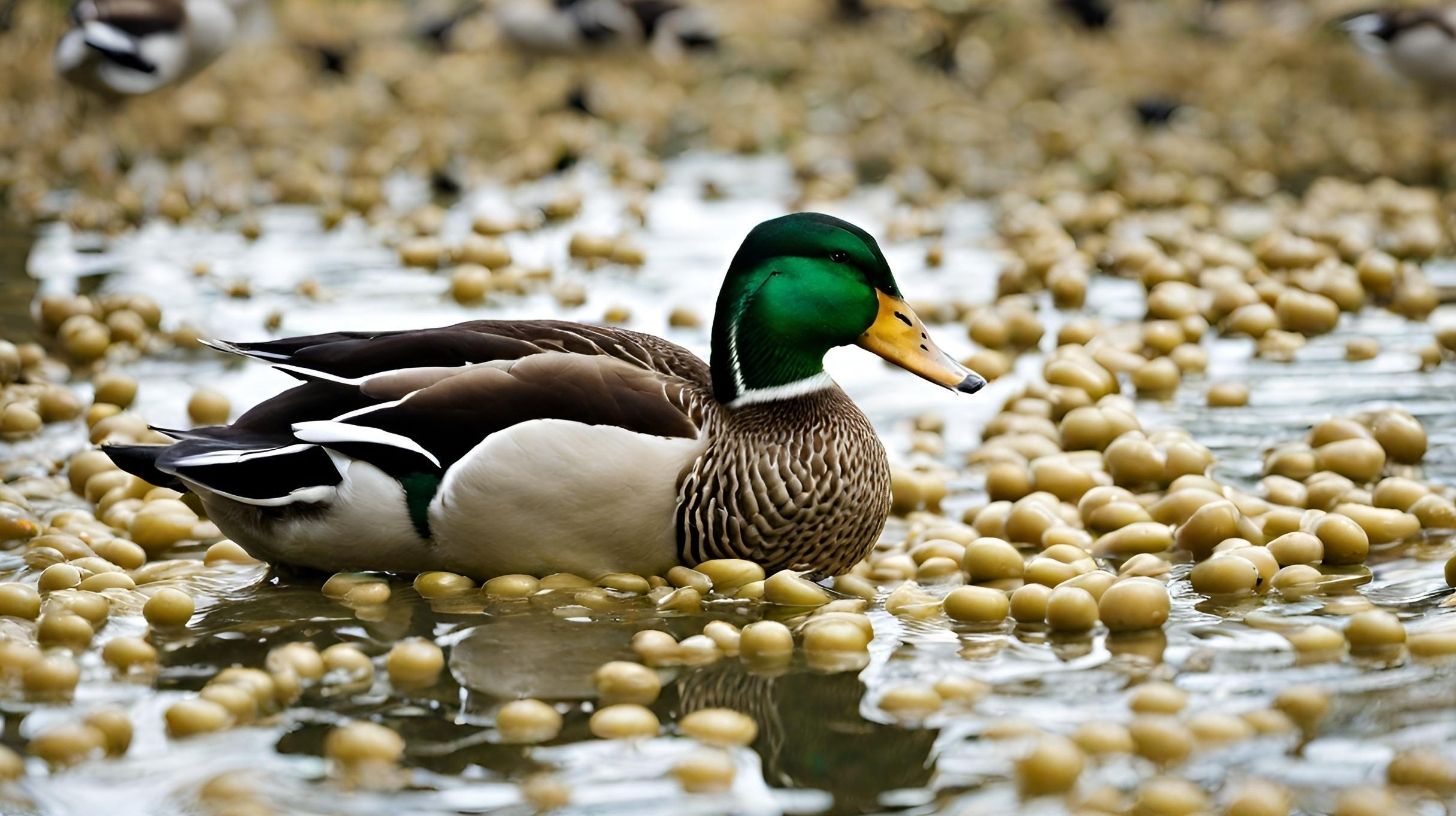 Are Soybeans Safe for Ducks to Eat?
Are Soybeans Safe for Ducks to Eat?
Soybeans are safe for ducks to consume, but special care should be taken in their preparation and feeding. Raw soybeans contain trypsin inhibitors, lectins, and phytic acid that can cause reduced growth rates, digestive upset, and mineral deficiencies. These anti-nutrients are eliminated when soybeans are properly cooked.
Additionally, soybean meal and other soy products may trigger allergic reactions or thyroid problems in sensitive ducks when fed in high amounts over time. For these reasons, it’s recommended to limit soy to less than 15% of a duck’s total dietary intake.
When fed properly, soybeans are an exceptional source of energy, protein, and omega-3 fatty acids important for duck health. By preparing soybeans correctly and feeding appropriate quantities, duck owners can safely incorporate soy as part of a diverse diet.
Nutritional Benefits of Soybeans for Ducks
- Protein – Soybeans contain all essential amino acids ducks need. High biological value soy protein promotes growth, muscle development, egg production, and overall duck health.
- Energy – The fat and carbohydrates in soybeans provide concentrated calories ducks require. The oils also provide beneficial omega-3 fatty acids.
- Fiber – Soybeans have a high fiber content that encourages digestive health and nutrient absorption.
Here is a nutritional comparison of soybeans versus corn:
| Nutrient | Soybeans | Corn |
|---|---|---|
| Protein | 36% | 8% |
| Fat | 20% | 4% |
| Fiber | 5% | 7% |
As the table shows, soybeans contain over 4 times more protein and 5 times more fat than corn. This makes soybeans an excellent alternative protein source compared to traditional grains. When combined with other grains, soy boosts the overall protein levels in duck feed.
Preparing Soybeans for Ducks
Raw soybeans must be properly prepared before feeding to ducks to destroy anti-nutrients:
- Soak – Soaking soybeans for 12-24 hours can eliminate up to 50% of anti-nutrients. Discard soaking water.
- Cook – Thorough cooking for at least 30 minutes destroys remaining anti-nutrients in soybeans. Boil or pressure cook until beans are soft.
- Mash/Grind – For young ducks, cooked beans should be mashed or ground to make them easier to digest.
- Sprout – Sprouting soybeans for 2-3 days can remove anti-nutrients while making beans more digestible.
Ducks can eat prepared soybeans boiled, mashed into feed, or sprouted. Avoid feeding raw or undercooked soybeans.
How Much Soy Can Ducks Eat?
Soybeans should compose no more than 10-15% of a duck’s diet. Higher amounts can cause soy allergies, thyroid impairment, digestive upset, and mineral deficiencies.
To provide perspective, a 5 lb duck should eat no more than:
- 3 oz of cooked soybeans per day
- 1.5 cups of soybean meal per week
When transitioning to a diet with soy, start with small amounts and gradually increase over 2 weeks while monitoring the duck’s droppings and behavior for adverse reactions.
Restrict soy for young ducklings until fully feathered, around 6-8 weeks old. Prioritize animal-based proteins for growing ducks. Mature ducks can better utilize plant proteins like soy.
What Do Ducks Eat Besides Soybeans?
Ducks need a varied diet with multiple sources of protein, carbohydrates, fat, vitamins, and minerals. Here are some other healthy duck foods:
Protein: Mealworms, fish, eggs, milk products, legumes, nuts, seeds, spirulina
Carbohydrates: Whole grains, leafy greens, lettuce, sprouts, aquatic plants
Fats: Insects, omega-3 rich fish like salmon, flax and chia seeds
Fiber/Greens: Kale, swiss chard, broccoli, berries, fruit, fresh/dried grasses
Grit: Crushed oyster shell, granite grit, insoluble fiber
Clean Water: Fresh, clean water available at all times
Rotate between a variety of protein sources rather than just relying on soy. Offer ducks free-choice access to greens/fiber and animal proteins like worms or aquatic plants.
Supplement with a commercial waterfowl feed, vitamins, and minerals. Avoid overfeeding treats. Feed no more than ducks will consume in 15 minutes, 2-3 times per day.
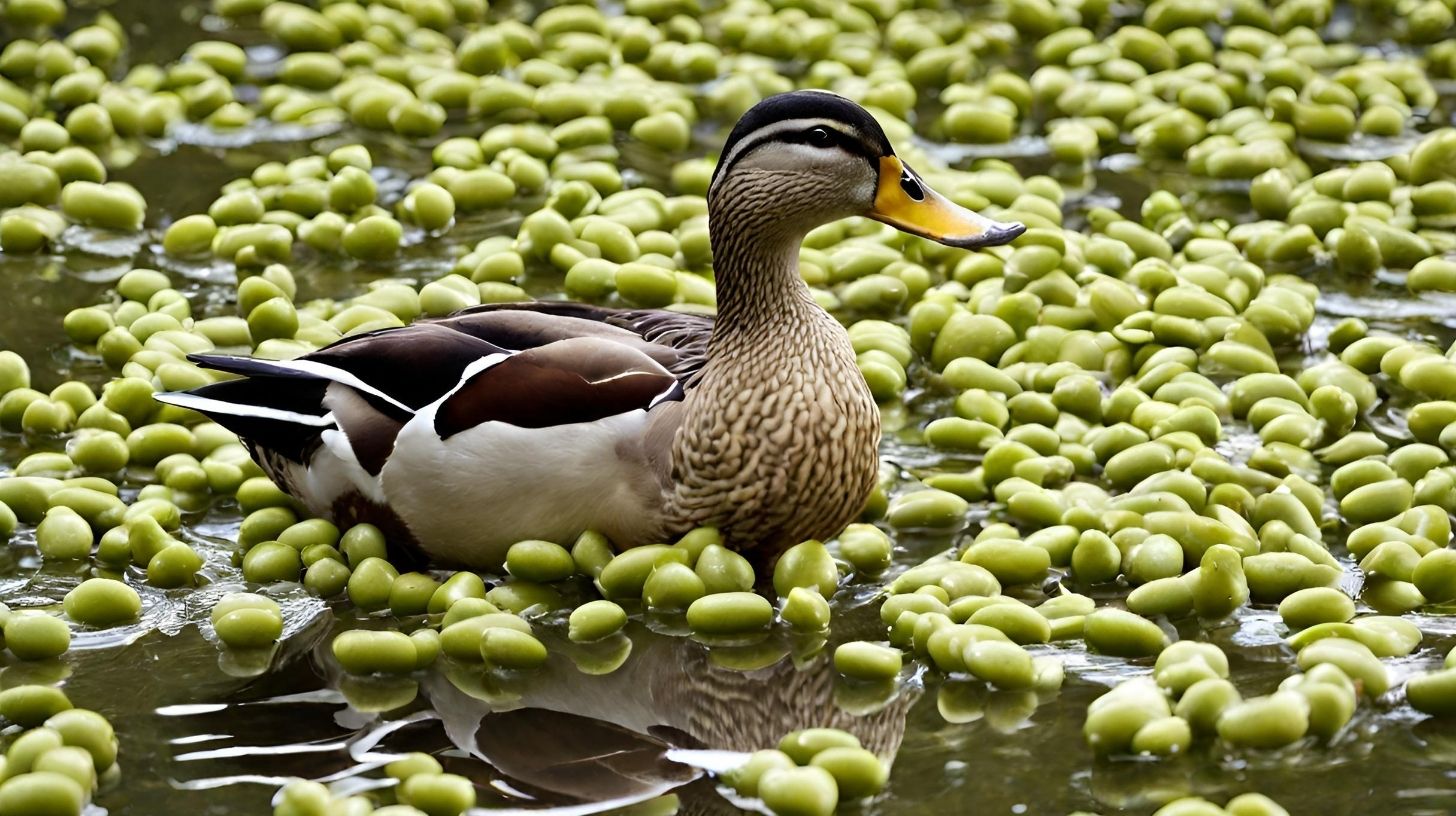 Are Soybeans Safe for Baby Ducks?
Are Soybeans Safe for Baby Ducks?
Soybeans are not recommended for ducklings under 6-8 weeks old. Young ducks have sensitive digestive systems and higher protein requirements for growth.
Wait until ducks are fully feathered before introducing small amounts of mashed, cooked soybeans. Prioritize feeds high in animal proteins like fish meal, shrimp meal, and insects.
As ducks mature, they can better utilize plant proteins like soy. But soy should still be limited to less than 15% of the diet to avoid potential health issues.
Can Ducks Eat Edamame?
Edamame are immature, green soybeans. Ducks can eat edamame raw or cooked. But raw edamame still contains anti-nutrients that can cause digestive upset.
For best results, boil or steam edamame until soft before feeding to ducks. Mash or finely chop to make edible for ducklings.
Since edamame is still soy, it should follow the same guidelines – limit total soy to less than 15% of diet. Rotating edamame with other protein sources is ideal.
What About Soy-Based Duck Feed?
Many commercial duck feeds contain soybean meal, soy oil, and other soy derivatives. When sourced from quality manufacturers, these feeds are nutritionally balanced and soy is pre-processed to remove anti-nutrients.
The maximum soybean meal in duck feed should be around 15-20%. Higher amounts can depress growth rates. Check the ingredient label before purchasing feed.
Supplementing with greens, vegetables, and animal proteins is still recommended for a well-rounded diet. Avoid overfeeding commercial feed. Offer just enough that ducks finish within 15 minutes.
Soybean Allergy in Ducks
Some ducks may develop hypersensitivities or allergies to soybean antigens with frequent, high exposure over months or years. Symptoms include:
- Digestive upset – loose droppings, vomiting, lack of appetite
- Skin irritation – itching, feather picking, dermatitis
- Respiratory signs – nasal/eye discharge, coughing, sneezing
- Poor growth and egg production
If allergy symptoms occur, remove all soybean products from the duck’s diet. Consult an avian veterinarian for appropriate treatment.
Gradually reintroduce limited soybean meal after a rest period if no alternatives exist. Rotate protein sources and restrict soy to prevent reoccurrence. Genetics and individual sensitivity affect soy tolerance.
Soybeans and Duck Egg Nutrition
Soybeans contain healthy fatty acids and isoflavones that may enrich duck eggs when included in the diet.
Studies found duck eggs had:
- Higher omega-3 and linoleic acid on a soybean diet
- Lower cholesterol due to soy isoflavones
- Larger yolk size from soy proteins
But overfeeding soy can also lower egg production. Limit soy to 10-15% of the diet to safely enhance duck egg nutrition without impairing overall health.
Can Ducks Eat Soybean Sprouts?
Soybean sprouts are a healthy, nutritious treat for ducks. Sprouting helps reduce anti-nutrients in raw soybeans and makes digestion easier.
Ducks enjoy foraging on soybean sprouts. They can eat sprouts raw unlike unsprouted beans. But avoid feeding large amounts of soy sprouts since they are still concentrated in phytoestrogens.
Mix sprouted soybeans with other sprouted seeds – like wheat, barley, or alfalfa – for variety. Rotate between small portions of soy sprouts and other proteins.
Are Ducks Allergic to Soy?
Rarely, some ducks may develop allergic hypersensitivities to soy antigens, especially pet ducks fed soy-heavy diets long-term. Allergy prevalence in ducks is lower compared to chicken and parrots.
Symptoms of soy allergy include loose droppings, dermatitis, respiratory distress, poor growth, and low egg production. Remove soy products and consult a veterinarian if allergy is suspected.
Genetic susceptibility, high phytoestrogen levels, and mineral deficiencies likely contribute to soy intolerances. Rotating protein sources, micronutrient supplementation, and reduced soy portions prevents most soy-related issues.
Soybean Precautions and Drawbacks
Despite the benefits, soybeans do come with some drawbacks duck owners should consider:
- Anti-nutrients – Raw soy contains trypsin inhibitors and phytic acid that impair digestion and nutrient absorption. Must be prepared properly prior to feeding.
- Phytoestrogens – Isoflavones can negatively affect the thyroid, reduce fertility, and impair egg production at high intakes.
- Allergies – Frequent, heavy soy feeding can sensitize ducks and trigger allergy symptoms in susceptible birds.
- Mineral availability – The phytates in soy reduce absorption of key minerals like calcium, magnesium, iron and zinc.
While soybean anti-nutrients are neutralized with proper cooking, it’s still prudent to limit soy portions to 10-15% of the total diet. Avoid over reliance on any single protein source.
Best Practices When Feeding Ducks Soybeans
Follow these tips for safely incorporating soybeans into your ducks’ diet:
- Soak and thoroughly cook beans to eliminate anti-nutrients
- Mash or grind cooked beans for baby ducks
- Introduce small amounts of soy, gradually increasing over 2 weeks
- Keep soy under 15% of total diet
- Avoid soybeans for ducklings under 6-8 weeks old
- Rotate between different protein sources
- Supplement with omega-3s, minerals, and greens
- Discontinue soy if allergy symptoms appear
- Consult your veterinarian with any concerns
Frequently Asked Questions
Can ducks eat soybean hulls?
Yes, soybean hulls are safe for ducks. Hulls are the fibrous outer covering of soybeans. They provide insoluble fiber that promotes gut health. But hulls lack protein, so should not replace other protein sources.
What about soy yogurt and soy milk?
Ducks can eat small amounts of soy yogurt and soy milk on occasion. Choose unsweetened, plain varieties. Soy milk gives needed water. But soy milk should not fully replace fresh water. Rotate with other protein treats.
Can ducks eat tofu?
Tofu is condensed soy milk processed into blocks. It’s safe for ducks if pan-fried or baked to improve digestibility. Chop tofu into bite-size pieces. But tofu is high in phytoestrogens, so limit to occasional small treats.
Is soybean oil safe for ducks?
Refined soybean oil is safe for ducks and often used in commercial duck feeds. It provides concentrated omega-3 fatty acids important for health. Avoid giving large quantities of straight oil. Check feed labels to avoid excess soy oil.
Can I sprout soybeans for ducks?
Yes, soybean sprouts are a healthy treat. Sprouting helps neutralize anti-nutrients. Ducks enjoy foraging on tender sprouts. Mix soy sprouts with other sprouted seeds for variety. Feed just a handful per duck at a time.
Conclusion
When properly prepared and fed in moderation, soybeans can be a beneficial addition to a duck’s diet. Soy provides quality protein, healthy fats, and fiber. But improper cooking and excessive amounts can also cause health issues over time.
By understanding how to prepare soybeans, recommended feeding guidelines, and diet variety, duck owners can safely incorporate soy as part of a balanced diet. Monitoring ducks for any adverse reactions and consulting an avian veterinarian can further help manage soybean use.
With the proper precautions, soybeans can be an excellent nutritional component to raise happy, healthy ducks. But a diverse diet should always take precedence over any single ingredient. Using soybeans as part of a varied, well-rounded diet is the key to getting the benefits while avoiding potential downsides.
Welcome. I’m Adreena Shanum, the proud owner of this website, and I am incredibly passionate about animals, especially poultry. I founded adreenapets.com as a labor of love, stemming from my desire to share my knowledge and experiences with poultry enthusiasts worldwide.


